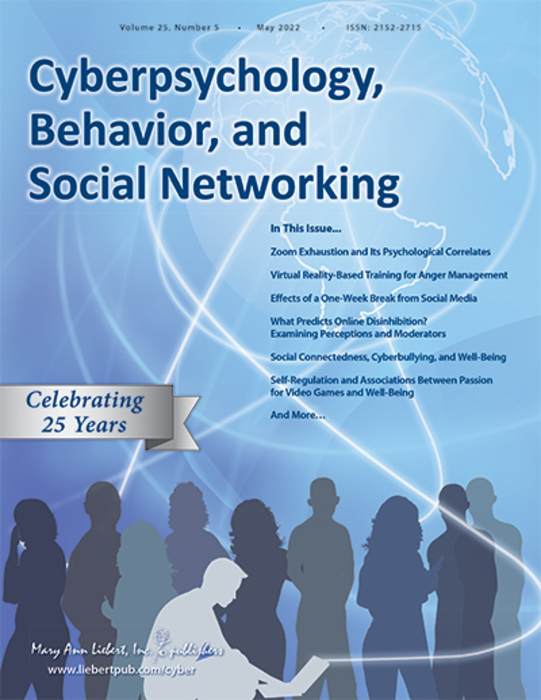Zoom fatigue during the COVID-19 pandemic was associated with depression, loneliness, and food insecurity. Higher levels of Zoom fatigue correlated with higher levels of loneliness, according to a new study published in the peer-reviewed journal Cyberpsychology, Behavior, and Social Networking. Click here to read the article now.

Credit: Mary Ann Liebert, Inc., publishers
Zoom fatigue during the COVID-19 pandemic was associated with depression, loneliness, and food insecurity. Higher levels of Zoom fatigue correlated with higher levels of loneliness, according to a new study published in the peer-reviewed journal Cyberpsychology, Behavior, and Social Networking. Click here to read the article now.
Zoom fatigue is a term used to describe overuse of videoconferencing for work. It describes feeling anxious, socially isolated, or emotionally exhausted due to lack of social connection
Eric Elbogen, PhD, from Duke University School of Medicine, and coauthors found that higher scores on a Zoom Fatigue Scale, which measured perceived stress, isolation, and depression associated with videoconferencing at work, were related to greater loneliness, lower social support, more weekly videoconference calls, and lacking money for food. Depressive symptoms demonstrated a significant association with Zoom fatigue
The investigators concluded that “employers and employees should consider a complex array of individual-level and environment-level factors when assessing the degree to which videoconferencing at work may engender stress, social isolation, and emotional exhaustion, which could adversely impact mental health, work productivity, and quality of life.”
“As the pandemic subsides and many of us make our way back to the office, it is predicted that videoconferencing use will remain high, replacing previous business travel. Research into how more immersive technologies, such as virtual reality, can supplement virtual meetings to mitigate fatigue and depression is vital,” says Editor-in-Chief Brenda K. Wiederhold, PhD, MBA, BCB, BCN, Interactive Media Institute, San Diego, California and Virtual Reality Medical Center, La Jolla, California.
About the Journal
Cyberpsychology, Behavior, and Social Networking is an authoritative peer-reviewed journal published monthly online with Open Access options and in print that explores the psychological and social issues surrounding the Internet and interactive technologies. Complete tables of contents and a sample issue may be viewed on the Cyberpsychology, Behavior, and Social Networking website.
About the Publisher
Mary Ann Liebert, Inc., publishers is known for establishing authoritative peer-reviewed journals in many promising areas of science and biomedical research. A complete list of the firm’s more than 100 journals, books, and newsmagazines is available on the Mary Ann Liebert, Inc., publishers website.
Journal
Cyberpsychology Behavior and Social Networking
DOI
10.1089/cyber.2021.0257
Method of Research
Case study
Subject of Research
People




